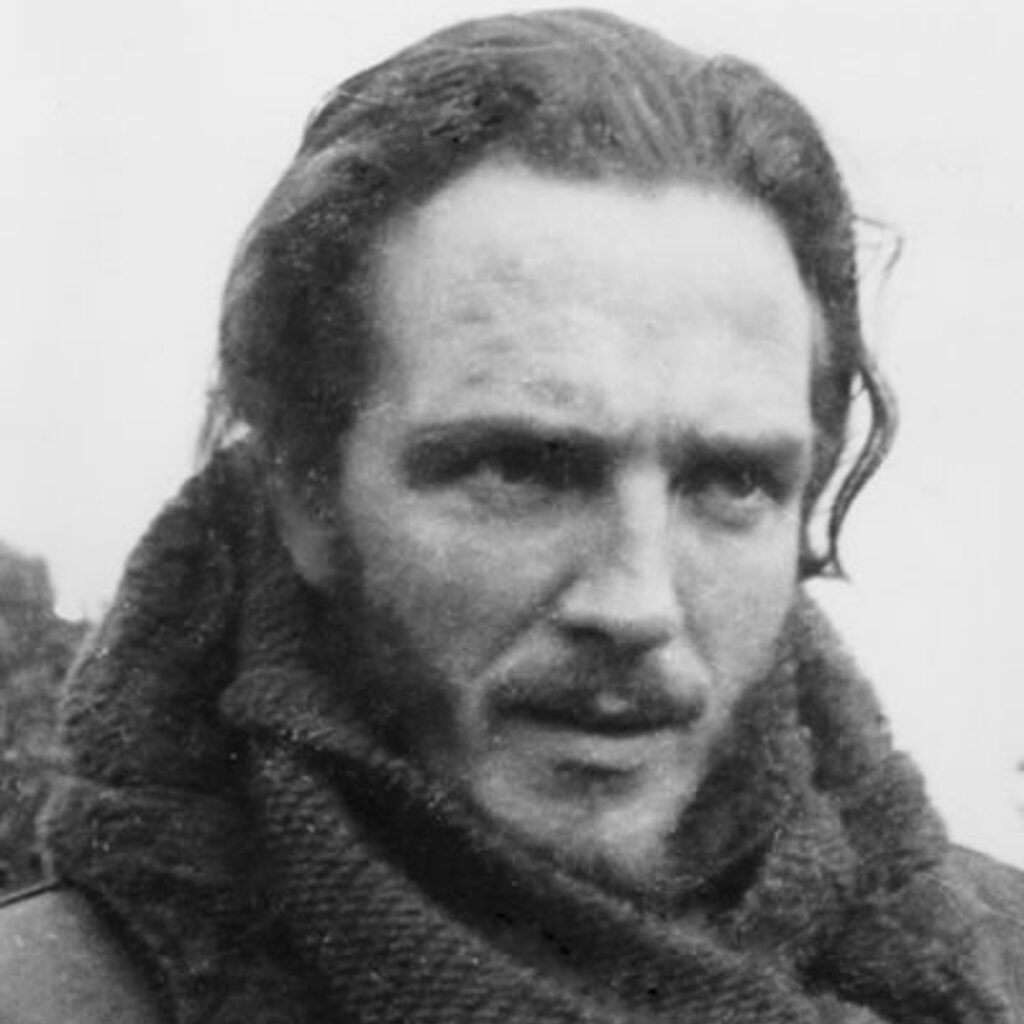George Patterson (1920-2012) went out as a missionary to Tibet with Geoffrey Bull in 1947. Though they began together, they went in very different directions. I wrote recently about how Bull was captured and imprisoned by the Communists, accused of being a British spy. After Bull’s release and departure from China, he remained a missionary, serving later in Borneo. George Patterson travelled a very different path.
The Herald newspaper summed up his life this way in his obituary in 2012: “George Patterson, who has died aged 92, was an engineer, preacher, medical missionary, journalist, Liberal Party candidate, author, lecturer, campaigner, counsellor and fundraiser. Above all, he was an adventurer.” Reading about his life, the word ‘adventurer’ seems more appropriate than ‘missionary’. That makes me wonder whether his desire for adventure was greater than his desire to make Jesus known to the Tibetan people.
Patterson was not arrested at the same time as Bull. The reason why is not clear, but their paths from that point were very different. Bull had gone into Tibet with medical supplies and treated Pandatshang Togbye, a powerful regional revolutionary. Later the communists approached this same man, Pandatshang Togbye, to side with them against the Lhasa government, and in doing so they revealed their plans to invade Tibet.
On hearing this, “Patterson wrestled with his conscience as to whether he should stay as a missionary or leave to alert the outside world to Tibet’s predicament. After much prayer, he decided on the latter move even though it meant over 1000 miles of travel by foot and horseback in freezing conditions to reach India. On his arrival in Calcutta, he met representatives of the American, British and Indian governments and revealed what he knew. Thus “in 1950, he alerted the world to the imminent invasion of Tibet by China. He also was part of an aborted plot to help the Dalai Lama to exile in America.”
Another source comments that “Patterson became Tibetan in all but name, adapting to the culture and learning the language fluently. He was a superb horseman whose body was as efficient as the Tibetans. Years later, with the Chinese still occupying Tibet, and with a bounty on his head for his role in rescuing the Dalai Lama, a band of determined Tibetan guerrillas invited Patterson to witness their attack on the invading Communist army. No other Westerner could get into Tibet, except Patterson, so the outside world was still oblivious to the Chinese invasion and the atrocities being perpetrated on the Tibetans. So Patterson went back into Tibet illegally and with a film crew.” Was all that part of a missionary calling? It is not for us to say. Patterson felt he had prayed and that he was right to do that. To others, that might not be so obvious.
Subsequently, his life took a different path. “In 1952 he met a brilliant young surgeon, Dr Margaret (Meg) Ingram. They married in 1953.” After a time in Hong Kong, where Margaret was involved in work amongst drug addicts, in 1973 the couple returned to Britain, this time to an apartment in Harley Street where Meg trialled electro-acupuncture as a treatment for drug addiction. Patterson now devoted his skills to supporting and promoting his wife’s work. The treatment was “sought out by some of the world’s best-known rock stars and Patterson found himself counselling the likes of Eric Clapton, Keith Richards and Boy George.” During this time, Patterson stood as Liberal candidate for Edinburgh West.
After Harley Street, they moved to “Broadhurst Manor, a 16th-century mansion in Horsted Keynes, which they hoped would become a permanent clinic. In the mid-1980s they went to San Diego from where Patterson helped open a charity clinic in Tijuana.” His final return to Britain came in 2001 after Meg suffered a stroke. She died in Scotland in July 2002. He died at his retirement home in Lesmahagow in 2012.
In 2011 the human rights organisation International Campaign for Tibet “awarded him the Light of Truth Award for making a significant contribution to the public understanding of Tibet.”
Patterson lived a remarkable life. One reader of his books commented that “he rose from Scottish poverty to associate with some of the world’s most fascinating and influential characters in politics, religion, broadcasting, music and film. He makes Indiana Jones look like a cissy. His fearless real-life adventures are legendary and would make a blockbuster movie. What is Spielberg waiting for?”
Honours and achievements indeed. His adventures were legendary. But what about his call to reach the Tibetans with the Gospel? Did he ever fulfill that mandate from the Lord? The apostle Paul said at the end of his life: “therefore, King Agrippa, I was not disobedient to the heavenly vision.” Only the Lord and George Patterson know if he could make that same claim.
Source The Herald Newspaper Obituary and others.



